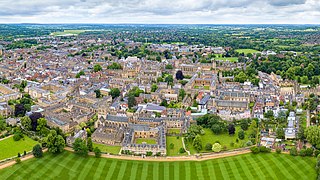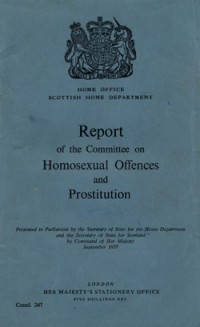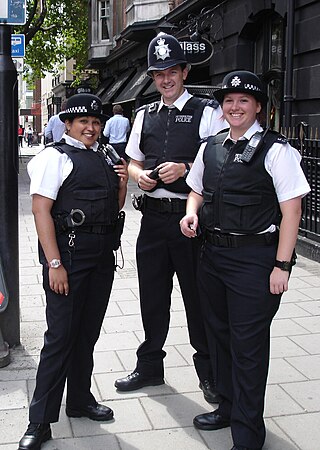| |||||
| Centuries: | |||||
|---|---|---|---|---|---|
| Decades: | |||||
| See also: | List of years in India Timeline of Indian history | ||||
Events in the year 1830 in India.
| |||||
| Centuries: | |||||
|---|---|---|---|---|---|
| Decades: | |||||
| See also: | List of years in India Timeline of Indian history | ||||
Events in the year 1830 in India.

The Acts of Union refer to two Acts of Parliament, one by the Parliament of England in 1706, the other by the Parliament of Scotland in 1707. They put into effect the Treaty of Union agreed on 22 July 1706, which combined the previously separate Kingdom of England and Kingdom of Scotland into a single Kingdom of Great Britain. The Acts took effect on 1 May 1707, creating the Parliament of Great Britain, based in the Palace of Westminster.
The United Kingdom of Great Britain and Northern Ireland, commonly known as the United Kingdom (UK) or Britain, is a country in Northwestern Europe, off the coast of the continental mainland. It comprises England, Scotland, Wales, and Northern Ireland. The UK includes the island of Great Britain, the north-eastern part of the island of Ireland, and most of the smaller islands within the British Isles. Northern Ireland shares a land border with the Republic of Ireland; otherwise, the United Kingdom is surrounded by the Atlantic Ocean, the North Sea, the English Channel, the Celtic Sea, and the Irish Sea. The total area of the United Kingdom is 94,354 square miles (244,376 km2), with an estimated population of 67,596,281 people in 2022. The capital and largest city of both England and the United Kingdom is London, whose wider metropolitan area is the largest in Western Europe, with a population of 14.9 million. The cities of Edinburgh, Cardiff, and Belfast are the national capitals of Scotland, Wales, and Northern Ireland, respectively. Other major cities include Birmingham, Manchester, Glasgow, Bristol, Liverpool, Sheffield, Newcastle and Leeds.

The ancient universities are British and Irish medieval universities and early modern universities founded before the year 1600. Four of these are located in Scotland, two in England, and one in Ireland. The ancient universities in Great Britain and Ireland are amongst the oldest extant universities in the world. The ancient universities in Britain are part of twenty-seven culturally significant institutions recognised by the British monarchy as privileged bodies of the United Kingdom.

The Report of the Departmental Committee on Homosexual Offences and Prostitution was published in the United Kingdom on 4 September 1957 after a succession of well-known men, including Lord Montagu of Beaulieu, Michael Pitt-Rivers, John Gielgud, and Peter Wildeblood were convicted of homosexual offences.
The Test Acts were a series of penal laws originating in Restoration England, passed by the Parliament of England, that served as a religious test for public office and imposed various civil disabilities on Catholics and nonconformist Protestants.

A Commonwealth realm is a sovereign state within the Commonwealth that has Charles III as its monarch and ceremonial head of state. All the realms are independent of the others, though one person, resident in the United Kingdom, acts as monarch of each. The phrase Commonwealth realm is an informal description not used in any law.
The Witchcraft Acts were a historical succession of governing laws in England, Scotland, Wales, Ireland, and the British colonies on penalties for the practice, or—in later years—rather for pretending to practice witchcraft.

The coat of arms of the United Kingdom, also referred to as the royal arms, are the arms of dominion of the British monarch, currently Charles III. They are used by the Government of the United Kingdom and by other Crown institutions, including courts in the United Kingdom and in some parts of the Commonwealth. Differenced versions of the arms are used by members of the British royal family. The monarch's official flag, the Royal Standard, is the coat of arms in flag form.

The Lord Chancellor, formally titled Lord High Chancellor of Great Britain, is the highest-ranking traditional minister among the Great Officers of State in Scotland and England in the United Kingdom, nominally outranking the prime minister. The lord chancellor is appointed by the sovereign on the advice of the prime minister. Prior to the union of England and Scotland into the Kingdom of Great Britain, there were separate lord chancellors for the Kingdom of England and the Kingdom of Scotland. There were Lord Chancellors of Ireland until 1922.

Law enforcement in the United Kingdom is organised separately in each of the legal systems of the United Kingdom: England and Wales, Scotland, and Northern Ireland. Most law enforcement duties are carried out by those who hold the office of police constable of a territorial police force.
Religion in the United Kingdom is mainly expressed in Christianity, which dominated the land since the 7th century. Results of the 2021 Census for England and Wales showed that Christianity is the largest religion, followed by the non-religious, Islam, Hinduism, Sikhism, Judaism, Buddhism, and Taoism. Among Christians, Anglicanism is the most common denomination, followed by Catholicism, Presbyterianism, Methodism, Unitarianism, and Baptism.
A statutory corporation is a government entity created as a statutory body by statute. Their precise nature varies by jurisdiction, but they are corporations owned by a government or controlled by national or sub-national government to the extent provided for in the creating legislation.

The Calendar Act 1750, also known as Chesterfield's Act or the British Calendar Act of 1751, is an Act of the Parliament of Great Britain. Its purpose was for Great Britain and the British Empire to adopt the Gregorian calendar. The Act also changed the start of the legal year from 25 March to 1 January.

The Short Titles Act 1896 is an act of the Parliament of the United Kingdom. It replaces the Short Titles Act 1892.

Scots law is the legal system of Scotland. It is a hybrid or mixed legal system containing civil law and common law elements, that traces its roots to a number of different historical sources. Together with English law and Northern Irish law, it is one of the three legal systems of the United Kingdom. Scots law recognises four sources of law: legislation, legal precedent, specific academic writings, and custom. Legislation affecting Scotland and Scots law is passed by the Scottish Parliament on all areas of devolved responsibility, and the United Kingdom Parliament on reserved matters. Some legislation passed by the pre-1707 Parliament of Scotland is still also valid.
Events in the year 1843 in India.